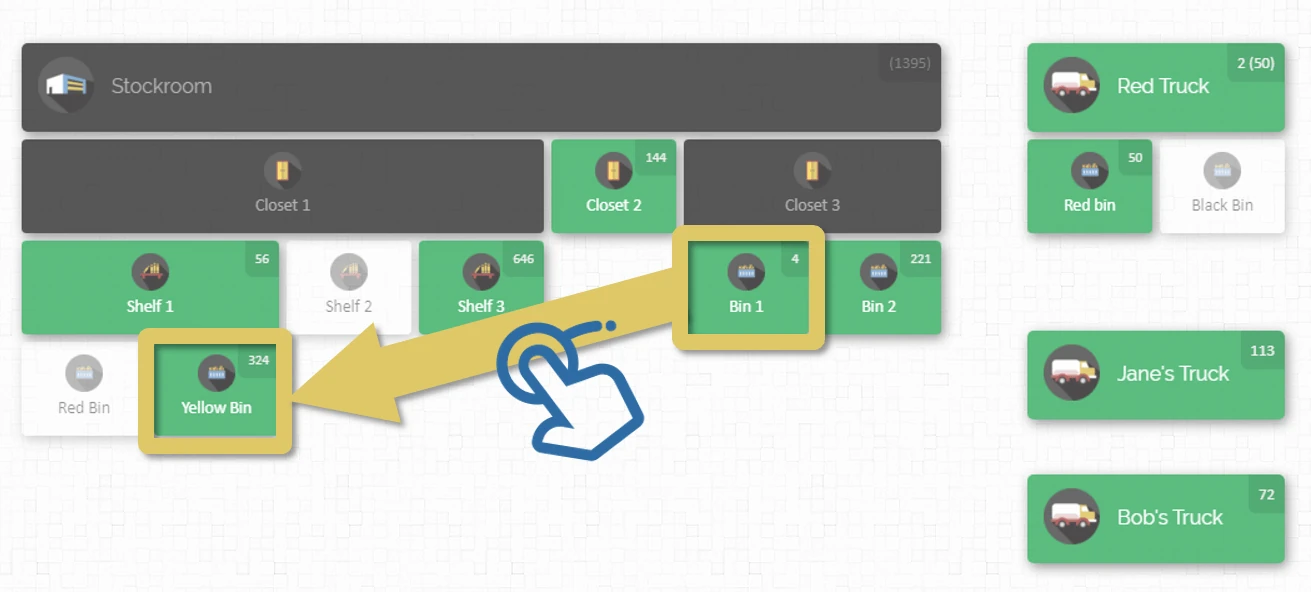In the dynamic world of business operations, the shift from traditional to digital practices is a defining trend of the 21st century. Among these digital transformations, inventory management has undergone a significant revolution, particularly with the advent of cloud-based solutions. This comprehensive article explores the concept of cloud-based inventory management software, a technology reshaping how businesses handle inventory, offering efficiency, scalability, and real-time data access.
What is Cloud-Based Inventory Management Software? Cloud-based inventory management software is a digital tool designed for modern businesses to monitor, manage, and organize their inventory data using cloud technology. This approach differs markedly from traditional methods, which often rely on physical records or localized servers. Instead, cloud-based systems utilize remote servers accessible via the internet, providing a more dynamic, secure, and scalable solution for inventory management.
Key Features of Cloud Based Inventory Management
-
Real-Time Tracking: The most significant advantage of these systems is the ability to provide live updates on inventory levels. Businesses can track stock movements, sales, returns, and order statuses in real time, ensuring they always have a current picture of their inventory situation.
-
Remote Access: A crucial benefit, particularly in today's globalized business environment, is the ability to access inventory data from any location. This feature is invaluable for businesses operating across multiple locations or those with mobile teams requiring constant access to inventory information.
-
Scalability: These systems are designed to grow with your business. Whether you're expanding product lines, increasing customer base, or entering new markets, cloud-based inventory management can adapt to your changing business needs without the need for significant additional investments in IT infrastructure.
-
Integration Capabilities: Cloud-based inventory management can integrate with other software systems, creating a cohesive and efficient workflow. This integration includes synchronizing with CRM systems for better customer service, ERP systems for streamlined operations, and financial software for accurate accounting and reporting. Moreover, services like Ops Engine 3PL logistics services exemplify this by offering seamless integration with various e-commerce platforms and ERP systems, ensuring efficient and synchronized operations. Their advanced technology and data-driven insights help businesses optimize shipping strategies and manage inventory effectively
Advantages Over Traditional Methods
-
Cost-Effectiveness: One of the most compelling advantages is cost savings. Cloud-based systems reduce the need for physical infrastructure (like servers and data storage facilities), which can be expensive to purchase and maintain. Additionally, these systems often operate on a subscription model, which means businesses can pay for only what they need, adjusting as their requirements change.
-
Efficiency and Data Accuracy: Automation of inventory tracking and management processes significantly reduces the likelihood of human error, resulting in more accurate inventory records. Accurate inventory data is critical for making informed business decisions, avoiding stockouts, and reducing excess inventory.
-
Accessibility and Convenience: The flexibility of accessing data from anywhere at any time not only provides convenience but also enhances responsiveness. Business leaders and inventory managers can make quick decisions based on the latest data, regardless of their physical location.

Extensive Applications Across Industries
-
Manufacturing: Manufacturers use these systems for tracking raw materials, managing production schedules, and ensuring timely delivery of finished goods. This real-time tracking is vital for maintaining production efficiency and meeting customer demands.
-
Healthcare: Healthcare institutions utilize it for managing medical supplies, pharmaceuticals, and equipment. The ability to track expiration dates, batch numbers, and equipment usage is crucial in this sector.
-
IT: All modern businesses need to track IT assets like laptops, tablets, servers, and printers. Sometimes these items are distributed to employees, other times they are deployed to different buildings. With remote work becoming the norm, it’s more important than ever to know exactly where everything is.
-
Retail: In retail, cloud-based inventory management is crucial for maintaining optimal stock levels, managing promotions, and handling multiple store inventories.
Trends in Cloud Based Systems
-
Advanced Analytics: Many cloud-based inventory systems now offer advanced analytics capabilities. This feature allows businesses to gain insights into inventory trends, predict demand, and make data-driven decisions.
-
Mobile Compatibility: With the rise of mobile technology, many cloud-based inventory management solutions offer mobile apps or mobile-friendly interfaces, allowing users to manage and view inventory from smartphones or tablets.
-
Customization and Flexibility: These systems often provide customization options, allowing businesses to tailor the software to their specific needs and processes.
The shift to cloud-based inventory management software is more than a mere trend; it's a strategic move for businesses aiming to stay competitive in a rapidly evolving market. The benefits of real-time tracking, remote access, scalability, and seamless integration make it a cornerstone of modern business operations. As we advance, the role of cloud-based solutions in inventory management will only grow, driven by technological advancements and the increasing demand for efficiency and agility in business processes.
Which Cloud-Based Inventory Software Should I Use?
When deciding on the right cloud-based inventory management software for your business, several key factors need to be considered. These include the size and complexity of your inventory, industry-specific requirements, integration capabilities with other systems, user-friendliness, scalability, and cost. However, one of the most critical aspects to consider is the level of visibility the software provides into your inventory.
- Size and Complexity of Inventory: Different software solutions cater to different sizes of inventory. While some are designed for large-scale operations with complex requirements, others are more suited to smaller businesses with simpler inventory needs.
- Industry-Specific Features: Depending on your industry, you may need specialized features. For instance, a healthcare provider might need software that can track expiration dates of medical supplies.
- Integration with Other Systems: Seamless integration with existing systems like CRM, ERP, or e-commerce platforms is vital for streamlined operations.
- User-Friendly Interface: The ease of use can significantly impact the efficiency and adoption of the software among your staff.
- Scalability: As your business grows, your inventory management system should be able to grow with you, accommodating increased inventory, more users, and additional functionalities.
- Cost: Consider the software’s pricing structure and whether it aligns with your budget. Many cloud-based solutions offer flexible pricing models based on usage, features, or number of users.
Recommendation: CyberStockroom for Enhanced Visibility
For businesses where visibility into inventory is paramount, CyberStockroom emerges as a highly recommended choice. This software stands out for its exceptional ability to provide a clear, real-time view of your inventory levels, movements, and trends.

Why Choose CyberStocrkoom?
- Unique Dashboard for Visibility: CyberStockroom offers a Map dashboard and reporting tools that give you an instant overview of your inventory status. This feature is crucial for making informed decisions and responding swiftly to inventory changes.
- User-Firendly Interface: Designed with the user in mind, CyberStockroom boasts an intuitive interface that simplifies inventory management, even for those who are not tech-savvy.
- Real-Time Tracking: The software updates inventory levels in real-time, ensuring that you always have the most current information at your fingertips.
- Scalable Solution: Whether you're a small startup or a growing enterprise, CyberStockroom can scale to meet your evolving needs.
When selecting a cloud-based inventory management system, it's essential to assess your specific business needs and priorities. For those prioritizing visibility into their inventory, CyberStockroom is a robust, user-friendly, and scalable option that can significantly enhance your inventory management capabilities
Related Links